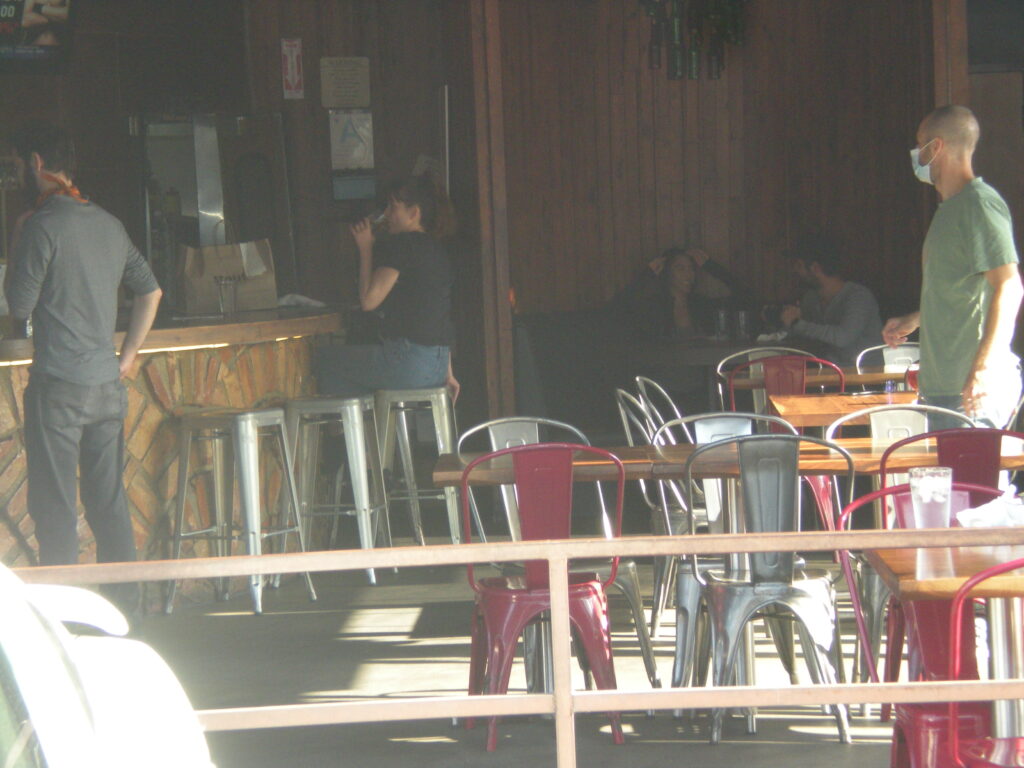UNITED STATES—John Steinbeck was no fool, but he did write one foolish thing in “Travels with Charley.” The novelist of the American Road, born in Salinas, set forth the true measure of our country being healed from all its racial strife. We would know we had overcome and transcended when a person could conduct a conversation with somebody on the street, and afterward, walk on without any recollection of the race of the person they had just talked to.
To my way of experiencing life, this would be denying something before our eyes, a flavor of reality. At the end of the day, the color of one’s skin is only skin deep, and shouldn’t be a catalyst for hateful encounters.
“We’re a very shouldn’t country,” said one of Darrin Bell’s comic strip characters.
Let me tell you something that shouldn’t have happened in Hollywood this week, right up the street. Or anywhere else, but it did.
During Coronavirus spring I’ve met a bartender and musician on furlough from both professions. Chad spent part of his time growing up in Virginia. In that state, he developed a keen sense of when one of the white guys were clocking somebody, just itching for some action. Chad’s face recreates the moment in his face doing the hard stare and twitchy movements of the head as this white boy clocked him and a young black man with soft manners he was talking to. Chad’s situational awareness was already triggered by the white guy sitting there shooting hard glances from his quadrant of the recently reopened craft-beer joint where everyone sits six feet apart.
Chad, who must be around 40, and the young guy were chatting. It turned out the young guy was also bartender at a real upscale bar on the West Side. Chad was sensitive to the intense scrutiny from the far corner of this drinkery. The suspense of waiting for the other shoe to drop ended finally when the white guy came slowly over, looked at the black kid and said, “Can I buy you a beer?”
The young off-duty bartender, after an uneasy pause, said, “No thanks I’m OK.”
Then the white guy retreated sullenly to his corner table. Meanwhile Chad and the other guy talked awhile. Pretty soon the guy whose offer of a beer had been rejected, came over with his plate of tortellini and dumped it on the table, where Chad and the other guy sat.
“I invited you for a beer and you turned me down. Here’s what I think of you”–followed by the most forbidden of all racial epithets in America.
The white guy released the plate of food and gravity did its work. Chad stood up to his full height of over six feet, and stuck up for his less physically imposing table companion.
Chad was later impressed with himself, “I discovered that old-man strength is a real thing.” Chad told the offender, “Let’s go outside now and have it out.”
The man who had deliberately picked on the smaller, weaker young bartender instead of a bigger guy who could have whooped him in a second, had miscalculated. He headed back to his corner, a little wobbly. Before sitting down, he whipped around his body and in one flourish of the arm swept all the glasses off the bar.
By now the police had been called. The guy who’d just destroyed a large supply of beer glasses headed outdoors. As he past Chad’s table he looked smugly at the young man he’d called a vicious name, and said slowly and appearing to savor every syllable, “I can’t breathe.”
In the parking lot, Chad restrained him. It wasn’t so difficult, since he had plenty of IPA in him. A waiter and dishwasher came out to help. The white guy was held to the group till the Hollywood police arrived.
A day later Chad got a phone text from the young bartender he protected. He thanked him for standing up and revealed that he had grown up in Brentwood. Never in his life had he experienced that kind of spite.
“I’m gonna save that text forever,” said Chad. “It’s more valuable than my college diploma.”
Grady Miller is the author of “Later Bloomer: Tales from Darkest Hollywood,” available on Amazon https://amzn.to/3bGBLB8






